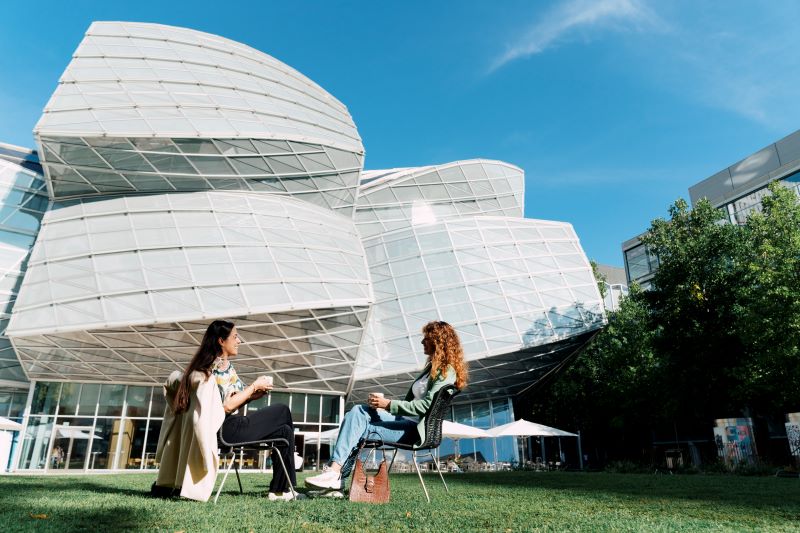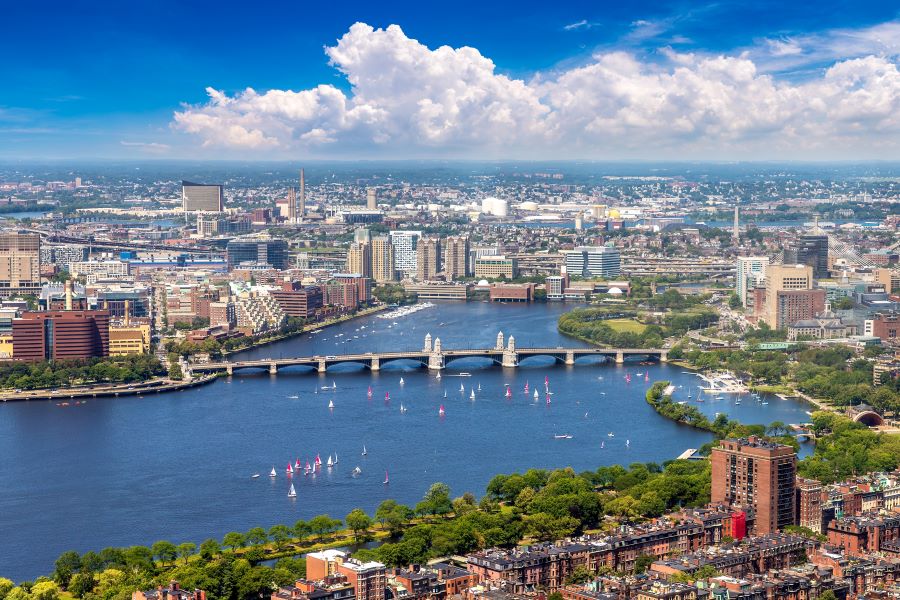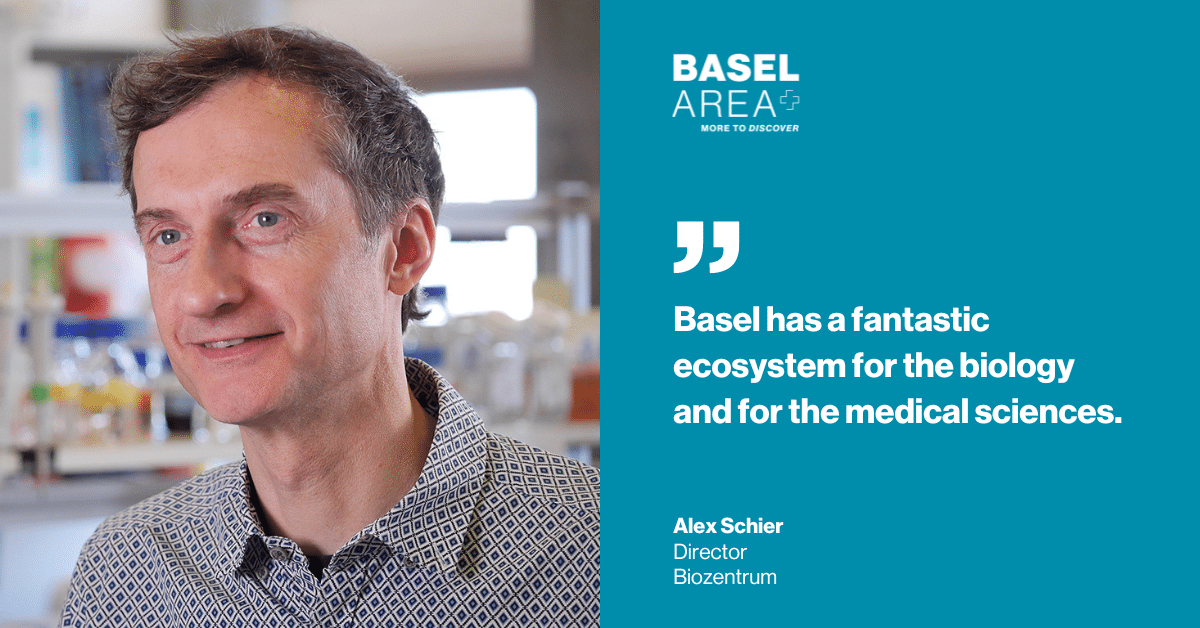Exploring Basel and Boston, the twin titans of the life sciences
After exploring ‘the synergies driving the biotech clusters in Boston and Basel’, let’s delve deeper into these centers of scientific excellence and discover the advantages for companies and individuals wishing to make Basel their European home.
Author: Kirsten Detrick
The ties that bind
The areas around Basel in Switzerland, and Boston and Cambridge in Massachusetts, boast life sciences sectors at the forefront of global innovation. Despite being located on opposite sides of the Atlantic, these flourishing centers of life sciences excellence share deep-rooted histories of innovation, with world-class academic institutions and local business cultures that foster collaborative ecosystems and prize scientific breakthroughs. The dawn of the biotechnology era saw a strengthening of ties between the Commonwealth of Massachusetts and the Canton of Basel-Stadt, creating a sister-state partnership in 2007 dedicated to fostering collaboration in areas such as education, trade, and technology.
The academic link
The University of Basel was established in 1460, long before the Basel Area’s life sciences industry had its start. Since then, the Area has catalyzed scientific advances across a broad array of sectors., This proud tradition continues today, with departments focused on biomedical engineering, physics, biomedicine, clinical research, chemistry and pharmaceutical sciences.
The world-renowned Biozentrum, founded in 1971, is the largest department in the University’s Faculty of Science, with more than 535 of the brightest minds in the industry driving innovative research in fields such as molecular biology, biophysics and computational and systems biology. It has given birth to many groundbreaking discoveries in biology and medicine, producing several Nobel Laureates and other highly regarded scientists who have been recognized with a plethora of esteemed research accolades, including the Albert Lasker Basic Medical Research Award for fundamental discoveries that open up new areas of biomedical science.
The Biozentrum is a prime example of the strength of the scientific links between Basel and Boston. Renowned cell biologist Prof. Dr. Alex Schier began his academic career at the Biozentrum before blazing a trail at Harvard University, which he joined in 2005, and which named him the Leo Erikson Life Sciences Professor of Molecular and Cellular Biology in 2013. He was chair of the University’s Department of Molecular and Cellular Biology from 2014 to 2017, before returning to his Basel roots in 2018 as Director of the Biozentrum. He has received several academic awards, including the Merit Award and the Pioneer Award from the National Institutes of Health.
Video: Prof. Dr. Alex Schier, Head of Research Group Vertebrate Development and Behavior. @Biozentrum at the University of Basel
Basel – a pool of scientific brain power
Today, the Basel scientific research ecosystem encompasses numerous distinguished enterprises renowned for innovation, with the Biozentrum at its heart. Other cutting-edge institutions and companies sit alongside and contribute to the general scientific buzz in the city, driving innovation across a wide range of research sectors. For example, the Friedrich Miescher Institute for Biomedical Research is affiliated with the University of Basel, the Novartis Institute for Biomedical Research (NIBR) is the beating heart of that corporation’s research activities, and the world-leading Swiss Tropical and Public Health Institute, dedicated to improving health and well-being by developing a better understanding of disease and health systems, is located here. This landscape is complemented by the School of Life Sciences of the University of Applied Sciences and Arts Northwestern Switzerland (FHNW), the University Hospital Basel and the University Children’s Hospital of Basel, top-tier medical centers dedicated to advanced clinical science and medicine.
As you might expect, such an abundance of scientific brain power has proven to be a powerful magnet for talent and investment. ETH Zurich – Switzerland’s equivalent of the Massachusetts Institute of Technology (MIT) – serves as an example, having established its Department of Biosystems Science and Engineering (D-BSSE) on the same life sciences campus as the Biozentrum in 2007.
Another example illustrating the Basel Area’s attractiveness is the recent establishment of the Botnar Institute of Immune Engineering (BIIE). A donation of more than $1 billion over 15 years from Fondation Botnar made the dream of a top-flight, European immunology-focused research center a reality. This new institute, which will have global appeal and reach, will employ at least 300 staff members. The Institute will occupy a brand-new building on the Main Campus of the Switzerland Innovation Park Basel Area in Allschwil. The BIIE will develop novel immune-based diagnostics and therapeutics, with the goal of improving the health of children and young people around the world.
”The BIIE will bring together a critical mass of investigators, all of whom are experts in various aspects of immune engineering; combining their strengths and perspective should result in a sum greater than its parts.
Stephen WilsonCEO of the BIIE
Government Investment in Basel’s life sciences ecosystem
The intellectual impact of the world’s leading scientific talent in Basel is supported by federal and cantonal investment into physical infrastructure designed to enable these bright minds to do their best work. For example, the University of Basel and the local Basel government have invested more than 1.1 billion Swiss francs (approximately US$1.2 billion ^) to establish new, modern research facilities able to accommodate not only current needs, but also support the future growth and evolution of life sciences entities in the region. This commitment to providing state-of-the-art infrastructure, with growth expansion possibilities, clearly shows the alignment between academia, industry and politics in the Basel area, with the common goal of ensuring that the region remains a hub for top-quality life sciences research.

Boston – a hub of scientific capital
The Boston area is the beating academic heart of medicine and life sciences in the United States. When you think of this location, two of the world’s most preeminent institutions immediately spring to mind, Harvard University and the Massachusetts Institute of Technology, but the region is also home to other leading universities, including, for example, Tufts and Boston University. Together, these universities publish some of the world’s most important scientific research and boast many global leaders in their fields. Just like its Basel counterpart, the Boston-Cambridge scientific ecosystem is further enriched by the presence of top independent, non-profit research institutions. These include the Broad Institute and the renowned Dana-Farber Cancer Institute, which is one of fifteen clinical affiliates and research institutes of Harvard Medical School.
According to an Industry Snapshot recently published by the Massachusetts Biotechnology Council (MassBio), R&D employment opportunities in the Massachusetts biotech sector grew by more than 2,181 jobs year-on-year in 2024, while biomanufacturing grew by 11.8%, both far outpacing other states, including California. The region – just like Basel-Stadt – has seen investments in life sciences construction rocket since the COVID-19 pandemic. More than 10% of current life sciences-specific space in Massachusetts was newly constructed in 2023, giving the industry a total inventory of nearly 62 million square feet of scientific and biomanufacturing real estate. When you consider the accessibility to such facilities, along with technology and brainpower, it is no surprise that the Massachusetts’ drug development pipeline consists of more than 2,000 investigational drugs – equivalent to 45% of the entire pipeline of China!

Aerial view of Boston and Cambridge (MA).
Building international partnerships
The Massachusetts Office of International Trade and Investment (MOITI) plays a critical role in ensuring ongoing trade and investment into the Commonwealth of Massachusetts – similar to Basel Area Business & Innovation’s work – and assists in forging transatlantic connections.
”The Healey-Driscoll Administration recognizes that when foreign companies choose to do business in Massachusetts, it means well-paying jobs for our residents, growing our tax base, and supporting our local communities. We have strengths in education, talent, research, and culture that make us an attractive location for foreign companies in Basel, Switzerland and elsewhere. Massachusetts is the global epicenter for the life sciences industry with 18 of the top 20 global pharmaceutical companies located in the state. Our administration is committed to investing in this key sector to develop more life-saving cures and create more jobs. We want to help companies from all over the globe start and scale in Massachusetts.
Jeevan RamapriyaExecutive Director of MOITI
”When international companies choose to invest in Switzerland, particularly in the Basel Area, it leads to well-paying jobs for our residents, strengthens our tax base, and supports local communities. As a global hub for the life sciences industry, with leading pharmaceutical companies headquartered here, the Basel Area offers immense growth potential. Our economic development efforts focus on driving investment in this vital sector to advance breakthrough innovations and create more employment opportunities. We are committed to helping businesses launch and scale in the Basel Area ecosystem.
Paul EschmannHead of International Markets and Business Affairs
Educating the next generation of scientists
Life sciences institutions in the Basel and Boston-Cambridge Areas also go beyond the pursuit of groundbreaking scientific innovation, committing themselves to teaching students and developing the next generation of scientific talent. These outstanding educational opportunities, along with attractive career choices and high standards of living, make Basel and Boston thriving scientific and intellectual magnets for students and professionals who want to benefit from the ecosystems in which they live and work.
The Basel Area and Massachusetts are home to some of the world’s most distinguished scientific talent and globally recognized academic research institutions. In combination with meaningful governmental support and investment, the cities are prime destinations for top-tier life sciences companies looking to expand their horizons.
* Swiss cantons are the equivalent of states in the USA.
^ Biozentrum: 430 million CHF; ETH D-BSSE 200 million CHF; Biomedicine 365 million CHF; Chemistry 170 million CHF
”Have a question or need guidance?
Fabio MarelliManager USA at Basel Area Business & Innovation
We help you discover success in our dynamic business environment.
Join our community
- Invitations to events that inspire and help you build your network
- News from the Basel Area and your ecosystem.
